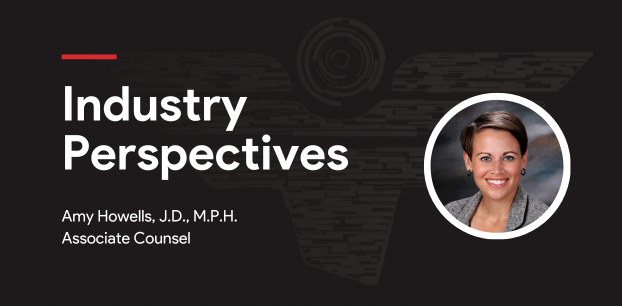
Champagne for my Real Friends, Real Pain for my Sham Friends: Proposed Class Action Lawsuit Puts Spotlight on Fiduciary Duty under ERISA
In early February of this year, a proposed class action lawsuit was filed against the company Johnson & Johnson and their Pension & Benefits Committee, sounding an alarm to those in the self-funded health plan industry. The complaint, brought by Johnson & Johnson employee Ann Lewandowski, individually and on behalf of other similarly situated employees, alleges Johnson & Johnson violated the Employee Retirement Income Security Act (ERISA), in particular, by breaching its fiduciary duty in the form of mismanagement of Johnson & Johnson’s prescription-drug benefits plan through their contracted Pharmacy Benefits Manager (PBM). Although in the early stages of litigation, this suit will likely serve as a clarion call for employers to take a harder look at what they’re paying for.
Under ERISA, anyone with discretionary authority of an employee-benefits plan is subject to fiduciary duties, including the duty of prudence. As in the case here, that duty applies to choosing service providers and comparing costs and benefits. The egregious markup of prescription drugs under Johnson & Johnson’s prescription-drug plan as compared to pharmacy self-reported costs and self-pay rates certainly paints a compelling picture of fiduciary failure. One example from the complaint describes a drug used to treat multiple sclerosis that’s self-pay price (no insurance) ranges from $28.40 to $77.41 but costs $10,239.69 under the Johnson & Johnson plan. A majority of those inflated costs fall to the plan, paid from plan assets, including member premiums, with a portion paid out-of-pocket by the member. As Lewandowski’s complaint states, “No prudent fiduciary would agree to make its plan and beneficiaries pay a price that is 250 times higher than the price available to any individual who just walks into a pharmacy and pays out-of-pocket.” The complaint further alleges Johnson & Johnson chose plan vendors without regard to blatant conflicts of interest, resulting in increased costs to the plan and plan members, and increased profits for the vendors.
Often, plan sponsors believe they can alleviate their fiduciary responsibility by assigning a third-party vendor to administer the plan. The choosing of any vendor, including a third-party administrator (“TPA”), however, also must be done prudently. That involves comparing vendors, checking for conflicts of interest, and ensuring all costs involved are reasonable. If the TPA acts imprudently, the plan sponsor is still on the hook for fiduciary liability.
ClaimDOC has always understood the heavy burden imposed on a health plan’s fiduciary, which is why ClaimDOC voluntarily assumes the role of co-fiduciary when it comes to their services. With ClaimDOC as co-fiduciary, the plan sponsor is assured that ClaimDOC will act in the best interest of the plan, and ClaimDOC is assured that their product will not be diluted by a negligent plan sponsor or other plan vendors. ClaimDOC also understands that fulfilling fiduciary duty is not simply about saving money; it’s about providing quality benefits and a quality member experience. Even if Johnson & Johnson chose a prescription-drug plan that was significantly cheaper, they could still be liable for breach of fiduciary duty if they didn’t choose that plan or vendor prudently, weighing all factors that influence member experience with the plan. ClaimDOC understands this, too, and provides a 360-degree view of risk and risk protection, from acting as co-fiduciary to auditing claims, charging reasonable services fees, and managing post-payment disputes, including appeals and balance bill defense.
It’s a dirty world of pay-for-play in the unbundled plan world. ClaimDOC is 100% operated with in-house staff and no work gets done on behalf of a plan via a vendor selection process that even has the opportunity to be influenced. Occasionally, ClaimDOC will recommend trading partners for brokers looking for ideas. Even if those trading partners benefit from ClaimDOC’s endorsement, ClaimDOC refuses to accept any kind of referral fee. The community needs more transparency in recommendations and the community needs to get away from all the borderline self-dealing that occurs – ClaimDOC is committed to practicing what it preaches in this regard.
While the sham fiduciaries get bogged down in court, pop some bottles with your homies at ClaimDOC (prudently, of course).